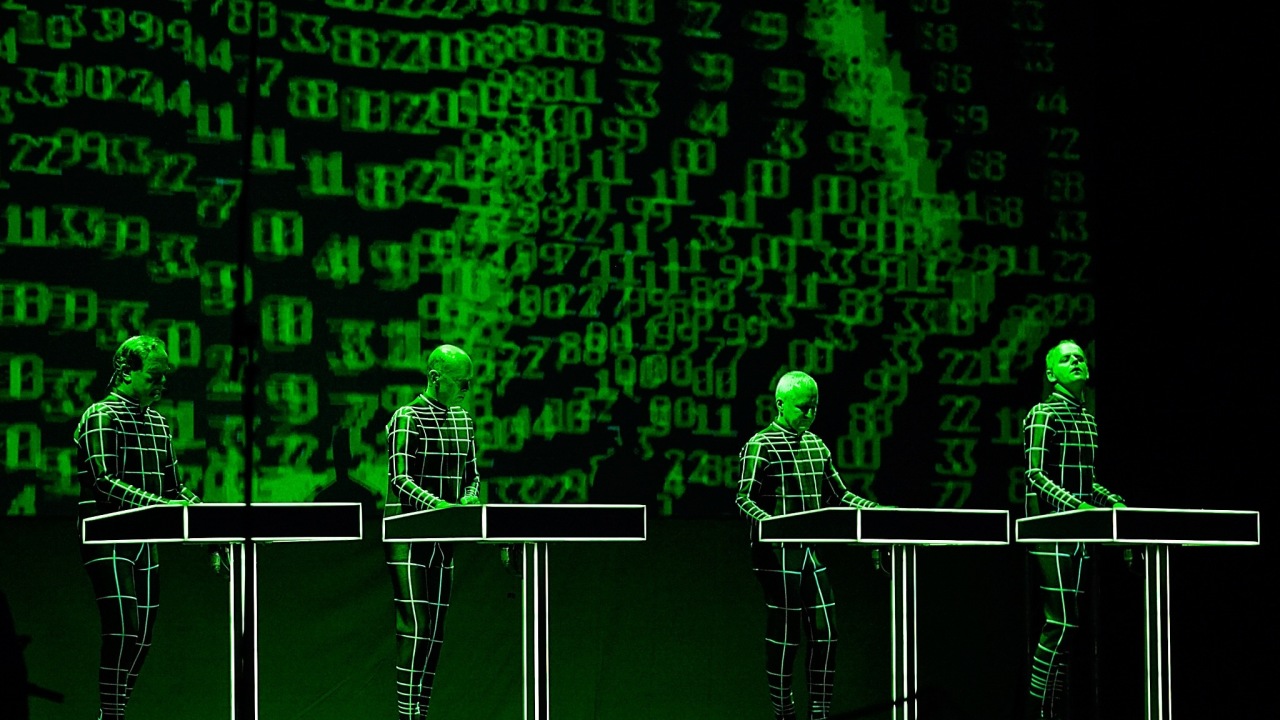In an enchanted, fairy-lit forest beside a golden beach in the north of Latvia, tens of thousands of Latvians and Estonians are wearing 3-D glasses and asking each other if they look silly. It’s quite a sight, but one which is usurped when Kraftwerk begin their festival-headlining show.
Optical trickery seems to send the long elastic arms of the quartet’s robot-doubles stretching out from the screen behind the band, reaching into our very midst. Later, planets will career into the crowd and trains run off tracks into the audience. 3-D is a high-impact thing – for a while. Then it gets a bit wearing, to be blunt, and you just want to put your specs in your pocket as a souvenir and listen to the band. By the time they embark on a rumbling Autobahn, it’s all about the music.
Kraftwerk’s enduring influence as key figures in krautrock, electronica, synth-play and the art of repetition means the four venerable figures onstage can simply stand behind their sleek keyboards and let the rhythms do the work. In a two-hour-plus set they map their career, from The Man-Machine to Tour De France, from Trans-Europe Express to Computer World and The Model.
The cold, shiny, digital future they foresaw came to pass: now they’re a vital cultural-historical artefact. Their sound remains strict, binary: a riposte to the exploratory nature of, say, Can, but just as pioneering and perverse in its uncompromising, cliche-subverting purity as the more feral members of the Germanic school.
Some of those looking for a festival party-vibe lose interest as the beat goes on: one wonders if they thought this was Daft Punk, only to realise it was their robot dads. Somehow, Kraftwerk live are simultaneously mesmerising and boring. There’s an accumulative effect to their clinical minimalism which changes your worldview (no less): for a time after seeing them, other music sounds messy and cluttered.
They’re the centre-piece of the biggest festival in the Baltic States, which in its eighth year offers a diverse buffet of genres amid its absurdly picturesque location two hours’ drive from Riga. Elbow headline the opening night, Guy Garvey’s self-proclaimed love of Gabriel and Genesis evident in the more intimate, intricate, melancholy numbers punctuating the well-known anthems. The jazz musings of the Pharoah Sanders Quartet grace a sunny afternoon; Anna Calvi throws in some Hendrix licks; Temples put a modern spin on psychedelia, and angular Estonian band Junk Riots and their falsetto singer are a find to treasure. The convivial atmosphere, with people swimming, dancing or both at the same time, makes this possibly the most incongruous setting imaginable in which to witness the supremely cerebral Kraftwerk. Ever against the grain.

